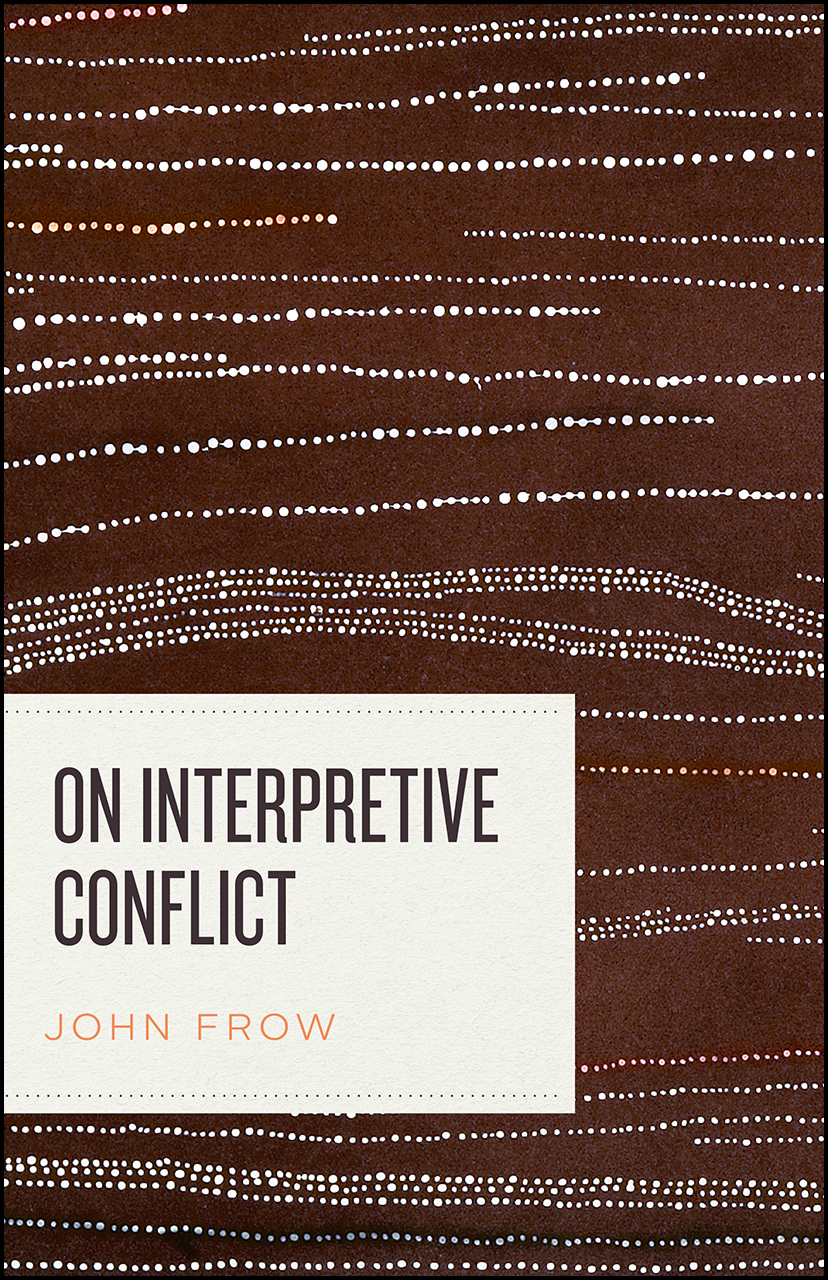
John Frow
On Interpretive Conflict
University of Chicago Press
ISBN: 9780226614007
216 p.
25,00 $
PRESENTATION
“Interpretation” is a term that encompasses both the most esoteric and the most fundamental activities of our lives, from analyzing medical images to the million ways we perceive other people’s actions. Today, we also leave interpretation to the likes of web cookies, social media algorithms, and automated markets. But as John Frow shows in this thoughtfully argued book, there is much yet to do in clarifying how we understand the social organization of interpretation.
On Interpretive Conflict delves into four case studies where sharply different sets of values come into play—gun control, anti-Semitism, the religious force of images, and climate change. In each case, Frow lays out the way these controversies unfold within interpretive regimes that establish what counts as an interpretable object and the protocols of evidence and proof that should govern it. Whether applied to a Shakespeare play or a Supreme Court case, interpretation, he argues, is at once rule-governed and inherently conflictual. Ambitious and provocative, On Interpretive Conflict will attract readers from across the humanities and beyond.
SOMMAIRE
Acknowledgments
Introduction: Institutions of Interpretation
1 Reading with Guns: District of Columbia v. Heller
2 Contract, Custom, and the Multiple Historicities of The Merchant of Venice
3 Icon, Iconoclasm, Presence
4 Construing Climate Change
Coda: Interpretation and Judgment
Index
REVIEWS
Alan Liu, University of California, Santa Barbara
“This is peak Frow. The book’s at once capacious and rigorous framework for thinking about the conflicted protocols, values, and institutions of interpretation—and its stunningly informed readings of past but especially recent legal, literary, artistic, and scientific cases—are urgently absorbing. When, on the last page of the last chapter, Frow breaks out of persona to speak passionately in personal voice about the interpretation of climate science, the reader knows he has earned that right.”
Julia Reinhard Lupton, University of California, Irvine
“Through a brilliant and wide-ranging prolegomenon followed by original case studies drawn from law, literature, art, and climate science, Frow powerfully unfolds the role that interpretive conflict plays in the knowledge worlds that shape our present realities. According to Frow, the regimes of reading advanced by particular interpretations direct discussion but do not determine it, making room for invention and creativity in the construction of new arguments and readings. On Interpretive Conflict will initiate its own interpretive conflicts, demonstrating decisively why thoughtful argument matters today.”
Bruce Robbins, Columbia University
“Changing the world requires interpreting the world and interpreting it well. Frow defends interpretation against its postcritical critics, administering them a gentle but devastating smackdown with his well-known authority and flair, taking his examples from climate change and Kafka, bridge building and Shakespeare, and Australian aboriginal art. In his hands we see contextualization not as a dull obligation but as an opportunity for brilliance.”
Michael Bérubé, Pennsylvania State University
“Frow has long been one of the Most Valuable Theorists in the enterprise known as cultural studies. In a wonderfully eclectic analysis that ranges from the U.S. Constitution to The Merchant of Venice, from climate change to the history of iconoclasm to the work of Aboriginal artist Dorothy Napangardi, Frow shows us how the conflict of interpretations weaves the social fabric, setting the terms for how we apprehend one another—and the nonhuman world as well.”